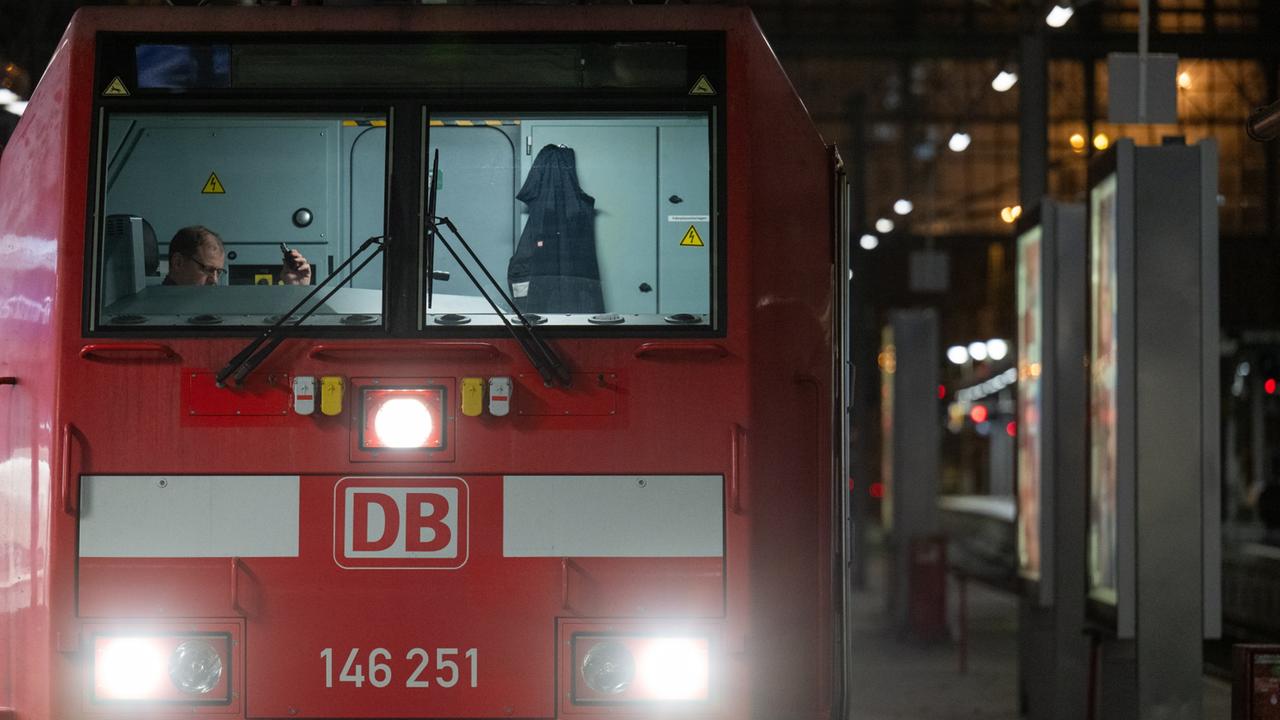The moderators de Maizière and Günther have published their proposal for a solution to the rail tariff conflict. This comes very close to the demands of the GDL and could therefore put GDL boss Weselsky in need of an explanation.
It is the The sticking point in the stalled collective bargaining at Deutsche Bahn: The German Locomotive Drivers' Union (GDL) insists that the weekly working hours for shift workers be reduced from 38 to 35 hours – with full wage compensation. And this time too, GDL boss Claus Weselsky stated that the railway company had not moved enough on this issue – and broke off the talks.
One hour less from 2026, one more from 2028
An agreement proposal from the two moderators apparently came very close to the union's demands. This emerges from a letter from former Interior Minister Thomas de Maizière (CDU) and Schleswig-Holstein Prime Minister Daniel Günther (CDU), which was published today. Günther was appointed moderator for the agreed search for compromise by the GDL, de Maizière by the railway.
Accordingly, the proposal envisaged reducing the weekly working hours for train crews in shift work and employees in workshops in two stages from the current 38 to 36 hours with full wage compensation. The first hour should be eliminated on January 1, 2026, the second on January 1, 2028.
“Different ones interpretations” reason of publication
“Due to different interpretations of the suggestion we made as moderators for the further progress of the discussions between Bahn and GDL, we are publishing this for clarification,” said de Maizière and Günther. “With this proposal we wanted to reach an agreement in this collective bargaining dispute.”
According to its own statements, the railway had agreed to the compromise proposal. The GDL does not, which is why the negotiations failed last week without an agreement and there are now strikes again.
Different representation from Weselsky
GDL boss Weselsky has to prepare for new allegations after the publication of the proposal. After the recent failure of the collective bargaining talks, the trade unionist rejected the result of the two moderators as inadequate – but gave different figures.
Weselsky said on Monday that the mediators' proposal only envisaged a reduction to 37 hours with full wage compensation. A further half-hour reduction would have been possible within the framework of an existing working time choice model at Deutsche Bahn. The railway rejected this representation.
GDL boss admits “errors in thinking”.
Meanwhile, Weselsky admitted that he made “a mistake in thinking” on Monday. The reduction he mentioned to just 36.5 hours was an interim step, he told the Süddeutsche Zeitung. The final suggestion of 36 hours came afterwards. Even his mistake doesn't change his rejection of the moderator's suggestion, he said. Because this does not contain any step towards a 35-hour week, the GDL's initial requirement.
The collective bargaining conflict between the GDL and Deutsche Bahn had recently escalated massively. The union announced new strikes from Wednesday evening at 6 p.m. – then they will begin in freight transport. The industrial action in passenger transport is scheduled to start at 2 a.m. on Thursday morning. This strike is scheduled to last 35 hours.
Afterwards there will be “wave strikes”, which are likely to have a massive impact on rail passengers because they are not supposed to be announced 48 hours in advance, as was previously the case – meaning the railway cannot create an emergency timetable. According to Weselsky, the aim of the “wave strikes” is to ensure that the railway is “no longer a reliable means of transport”.




